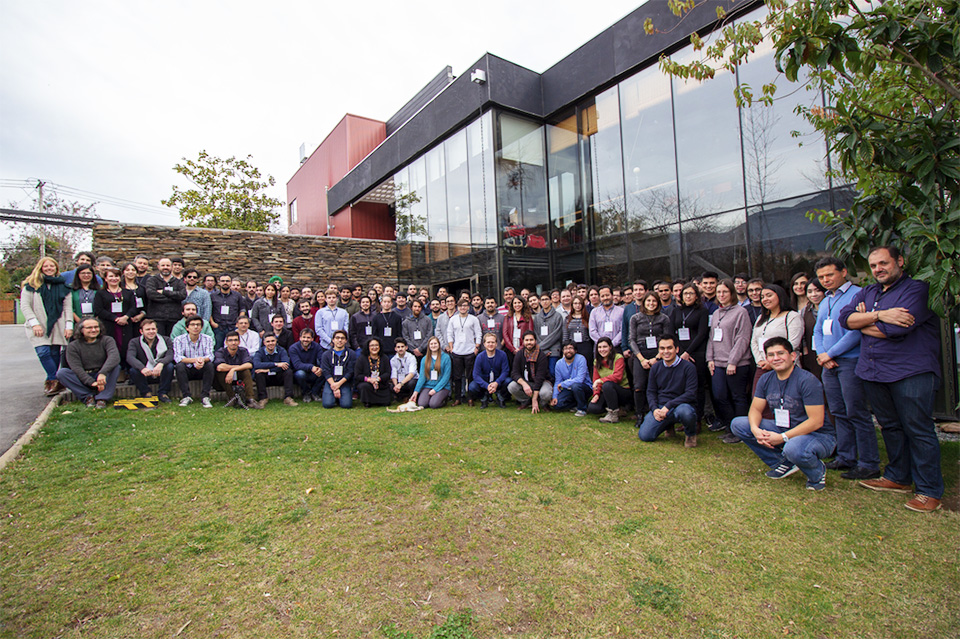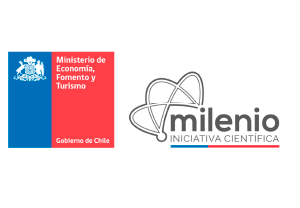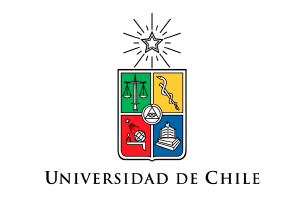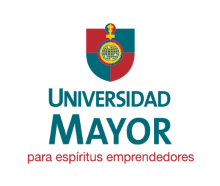We are a reference research center that brings together scientists from the areas of computer science, statistics, political sciences, and communications, with the goal of developing interdisciplinary frontier science to address the foundational problems on data.
The Millennium Institute Foundational Research on Data (IMFD) is a joint initiative led by the Catholic University of Chile and the University of Chile, with associate researchers from the University Federico Santa María, the University of Concepción, the University of Talca and the Diego Portales University. IMFD is funded by the Millennium Science Initiative. This research center arises as the natural evolution of the Semantic Web Research Center, which achieved a relevant position in the area. Know more of our previous work here.
The work of the IMFD is led by the principles of independence, transparency, and collaboration to do research that benefits society. With a rigorous interdisciplinary scientific approach it aims to study data in all its complex dimensions: its heterogeneity of sources and variety of formats; the challenges in storage, safety and privacy, the need for new query languages, the study of information availability and dissemination, the social uses and the impact of digital information, among others.
The institute aims at contributing to the comprehension of the digital universe, one that is increasingly reproducing all the phenomena and the profound social changes occurring today. By doing so, the IMFD expects to design new techniques, able to detect and visualize critical needs as well as emerging social problems.
The IMFD is also working to strengthen the scientifical research on data, to develop human capital able to tackle the new problems and requirements arising on this field and to promote at a general level the importance for society to count on reliable and accountable information.
The Institute firmly believes that research on data can encourage political dynamics oriented towards integrity, to decision-making processes based on intelligence, to the improvement of a public administration at the service of social wellbeing and to strengthen democracy.
The institute internal work is organized on boards. The Institute Board is in charge of all the strategical decisions and it is formed by the leaders of the Emblematic Projects and the directors. The Executive Board is responsible for the day-to-day operational decisions. We also have a Steering Committee (more information here), formed by renown scientists, who provide advice and guidance about the research work that is being carried out, and also in training, networking, and outreach, with the aim of developing the scientific potential of the IMFD in the best possible way. To know more about our organization, please, see the figure Our Structure below in this page.

Our work is organized in five transversal Emblematic Projects. Through them we look for the development of applications that help us contribute to the strengthening of a culture of transparency and the use of information at the service of society. To know further about our Emblematic Problems, click here or read a synthesis below.
A. Data for the study of highly complex social problems
Through the compilation, integration and modeling of existing data on social problems in Chile and the comparative analysis of other countries, we are generating high value knowledge that will allow us to contribute to a more complete understanding of the causes and key factors behind the sociopolitical conflict in the contemporary society.
B. Development of new query languages for graphos
Currently, one of the most popular systems to store information is in graphos data bases, which are complex networks of interconnected nodes. In our institute, we are studying the development of new query languages able to extract information from vast amount of data represented in graphos, and new techniques for their efficient storage.
C. Efficient data retrieval from highly complex scenarios
The variety of sources and formats of data, their distribution and massiveness are only some of the factors that make the efficient extraction of information a difficult task. We are studying how to create new languages which will be able to provide answers with safety and integrity for demanding queries on complex data.
D. Explainable Artificial Intelligence
The current growth of artificial intelligence (AI) its due in part to the success of the deep learning models, mainly of those based in pattern recognition. We are developing AI techniques able to learn procedures rather than memorizing patterns. This work will be key in increasing the ability of AI to learn more with few examples.
E. Development of robust information structures
Misinformation and malign information have been proven to have negative effects on society, by reducing the public trust in the actors usually in charge of the production of information, such as mass media, science and governments. In our institute we aim at generating strong information structures which verify knowledge obtained from non structured data sources.

The complexity of data makes it difficult to get the most out of it. The Millennium Institute Foundational Research on Data aims to study data in all its complexity, from theoretical to applied problems, ranging from the heterogeneity of sources, their volume and production rate, their distribution, privacy dilemmas and social implications, among many other current and urgent research topics in science of data. To know in depth about our research areas, click here or read the summary below.
A. Acquisition, Modeling, and Knowledge Extraction
Through this research line the IMFD aims to tackle issues related to the fundamental representation and structure of data.
B. Storage, Retrieval, and Privacy
The institute is studying the efficient implementation of data management and new analysis techniques.
C. Mining, Learning and Visualization
This area of the IMFD deals with the use of machines to mine patterns from legacy data and the presentation of the results in an intuitive manner.
D. Governmental Data Infrastructure
The main goal of this research line is to develop a technical platform for better exploiting available data in the public sphere.
E. Sociopolitical Effects of Data
In this area, the IMFD applies social data analytics to consider the human aspect of how data is generated and utilized.

Millennium Institute Foundational Research on Data
Edificio San Agustín, Campus San Joaquín,
Pontificia Universidad Católica
Vicuña Mackenna 4860, Macul,
Santiago, CHILE
E-mail: fundamentos@imfd.cl
As our researchers belong to different universities, we kindly ask you to specify the area or person you are trying to contact, to be able to assist you efficiently.
OTHER AREAS
Innovation and Tech Transfer: innovacion@imfd.cl
Postgraduate Programs and Networking: formacion@imfd.cl
Communications and Outreach: comunicaciones-imfd@imfd.cl
Nuestra estructura
Institute Board
Strategical decision makers, in charge of guiding and streghtening the development of the Millennium Institute Foundational Research on Data work,
Directors
Emblematic Projects Directors
Researchers
Executive Board
Tactical and operative decision makers
Steering Committee
Provides support to the IMFD Board in research politics, postgraduate formation and networking.










